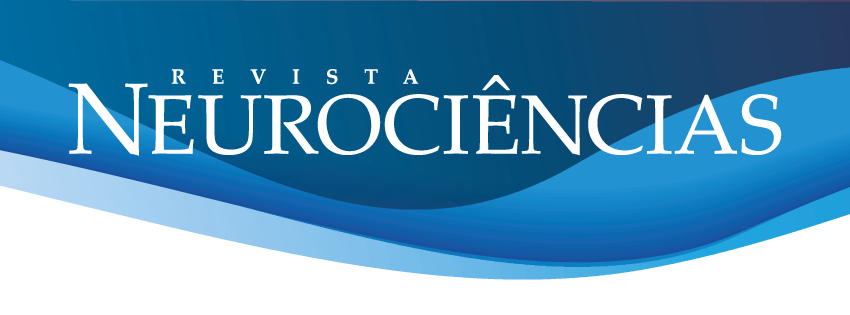Relationship of Neuroplasticity and Self-regulation through Metacognition
DOI:
https://doi.org/10.34024/rnc.2023.v31.15493Keywords:
Brain neuroplasticity, Metacognition, Self-regulation, Cognitive development, Effective learningAbstract
Objective. This literature review aims to analyze how brain neuroplasticity plays a crucial role in the metacognitive and self-regulatory development process. Method. A narrative literature review was conducted in the Google Scholar, CAPES Periodicals Portal, and Scientific Electronic Library (SciELO) databases. Experimental articles published in the last 10 years, available in full text, in Portuguese, English, and Spanish, referring to the relationship between metacognition and self-regulation, self-regulation, and neuroplasticity, were included. Results. Cognitive training, such as the development of metacognitive skills, leads to increased neural network interconnectivity between the frontal and parietal lobes, resulting in increased synapses in these areas and greater axonal myelination, which accelerates nerve impulse transmission. Conclusion. The development of these skills can positively influence human success and well-being in various areas such as corporate work, educational learning, and social interaction, through the self-regulation of emotions and better decision-making action elaboration. Therefore, metacognition, self-regulation, and neuroplasticity are essential for effective learning and human development. These skills can be cultivated from childhood and taught to adults, promoting improvement in cognitive performance and the ability to critically analyze, adapt, and reflect on oneself.
Metrics
References
Karlen Y, Hertel S, Hirt CN. Teachers’ professional competences in self-regulated learning: An approach to integrate teachers’ competences as self-regulated learners and as agents of self-regulated learning in a holistic manner. Front Educ 2020;5:159. https://doi.org/10.3389/feduc.2020.00159
Quigley A, Muijs D, Stringer E. Metacognition and self-regulated learning guidance report. London: Sutton Trust-EEF; 2018. https://educationendowmentfoundation.org.uk/tools/guidance-reports/metacognition-and-self-regulated-learning/
Flavell JH. Metacognition and cognitive monitoring: A new area of cognitive–developmental inquiry. Am Psychol 1979;34:906. https://doi.org/10.1037/0003-066X.34.10.906
Andrade AACD, Rodrigues MCR, Tette PPM, Silva BMS, Almeida BCD, Pereira HDR, et al. Promoção De Estratégias De Aprendizagem Em Estudantes De Psicologia. Psicol Esc Edu 2020;24:1-9. https://doi.org/10.1590/2175-35392020212962
Varshney LR, Barbey AK. Beyond IQ: The Importance of Metacognition for the Promotion of Global Wellbeing. J Intelligence 2021;9:54. https://doi.org/10.3390/jintelligence9040054
Coelho CL, Sodré CZ. Raciocínio Lógico, Avaliação Interativa E Ludicidade No Contexto Da Inclusão. Rev IberoAm Est Edu 2019;14:470. https://doi.org/10.21723/riaee.v14i2.11674
Locatelli SW, Alves NCB. Aproximações Entre O Monitoramento Metacognitivo E a Elaboração De Portfólio Em Uma Disciplina De Química Geral. Amazônia (Universidade Federal Do Pará). 2018;14:79-92. https://doi.org/10.18542/amazrecm.v14i29.5578
Trust-EEF S. Teaching and learning toolkit. London: Sutton Trust-EEF; 2013. https://educationendowmentfoundation.org.uk/education-evidence/teaching-learning-toolkit
Kolb B, Gibb R. Searching for the principles of brain plasticity and behavior. Cortex 2014;58:251-60. https://doi.org/10.1016/j.cortex.2013.11.012
Sitaram R, Ros T, Stoeckel L, Haller S, Scharnowski F, Lewis-Peacock J, et al. Closed-loop brain training: the science of neurofeedback. Nature Rev Neurosci 2017;18:86-100. https://doi.org/10.1038/nrn.2016.164
Boruchovitch E, Santos AAA. Psychometric Studies of the Learning Strategies Scale for University Students. Paidéia Cad Psicol Edu 2015;25:19-27. https://doi.org/10.1590/1982-43272560201504
Sarrasin JB, Nenciovici L, Foisy LMB, Allaire-Duquette G, Riopel M, Masson S. Effects of teaching the concept of neuroplasticity to induce a growth mindset on motivation, achievement, and brain activity: A meta-analysis. Trends Neurosci Edu 2018;12:22-31. https://doi.org/10.1016/j.tine.2018.07.003
Debarnot U, Sperduti M, Di Rienzo F, Guillot A. Expert’s bodies, expert’s minds: how physical and mental training shape the brain. Front Hum Neurosci 2014;8:280. https://doi.org/10.3389/fnhum.2014.00280
Pascual-Leone A, Amedi A, Fregni F, Merabet LB. The plastic human brain cortex. Annu Rev Neurosci 2005;28:377-401. https://doi.org/10.1146/annurev.neuro.27.070203.144216
Cherrier S, Wattelez G, Ferrière S, Borst G. NeuroStratE: An educational neuroscience intervention to reduce procrastination behavior and improve executive planning function in higher students. Front Educ 2023;8:217. https://doi.org/10.3389/feduc.2023.1149817
Elimari N, Lafargue G. Network neuroscience and the adapted mind: Rethinking the role of network theories in evolutionary psychology. Front Psychol 2020;11:545-632. https://doi.org/10.3389/fpsyg.2020.545632
Sherwood MS, Kane JH, Weisend MP, Parker JG. Enhanced control of dorsolateral prefrontal cortex neurophysiology with real-time functional magnetic resonance imaging (rt-fMRI) neurofeedback training and working memory practice. Neuroimage 2016;124:214-23. https://doi.org/10.1016/j.neuroimage.2015.08.074
Ferreri L, Mas-Herrero E, Zatorre RJ, Ripollés P, Gomez-Andres A, Alicart H, et al. Dopamine modulates the reward experiences elicited by music. Proc Natl Acad Sci 2019;116:3793-8. https://doi.org/10.1073/pnas.1811878116
Savina E. Self-regulation in preschool and early elementary classrooms: Why it is important and how to promote it. Early Childhood Edu J 2021;49:493-501. https://doi.org/10.1007/s10643-020-01094-w
Rede CpE. Competências Socioemocionais, Metacognição e Tecnologia. Documento Temático 3. 2016. https://cienciaparaeducacao.org/wp-content/uploads/2016/12/Conte%C3%BAdo-Livreto-3.pdf
Downloads
Published
How to Cite
Issue
Section
License
Copyright (c) 2023 Natali Lourenço Nascimento

This work is licensed under a Creative Commons Attribution 4.0 International License.
##plugins.generic.dates.accepted## 2023-11-23
##plugins.generic.dates.published## 2023-12-05


 Português
Português
 English
English
 Español
Español
